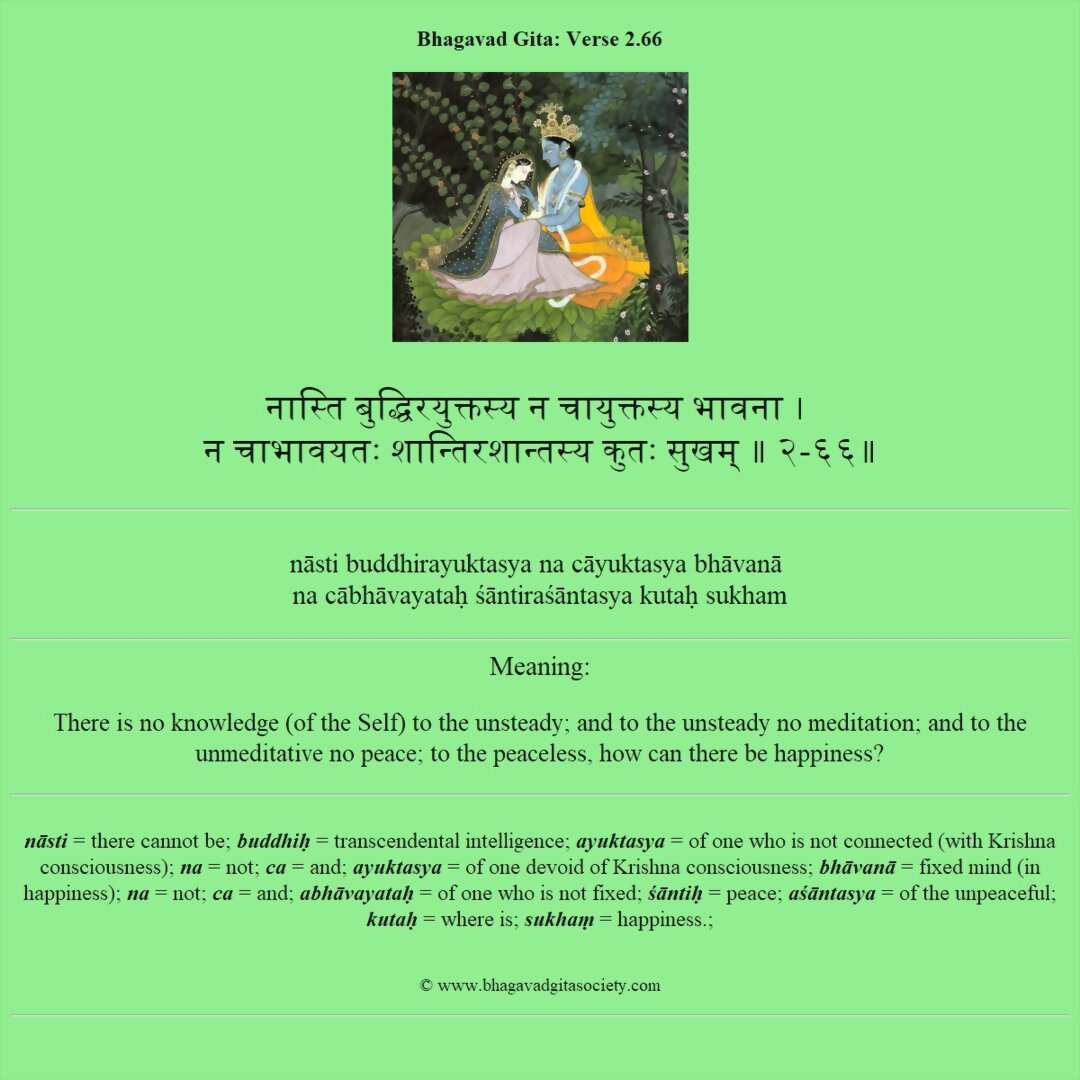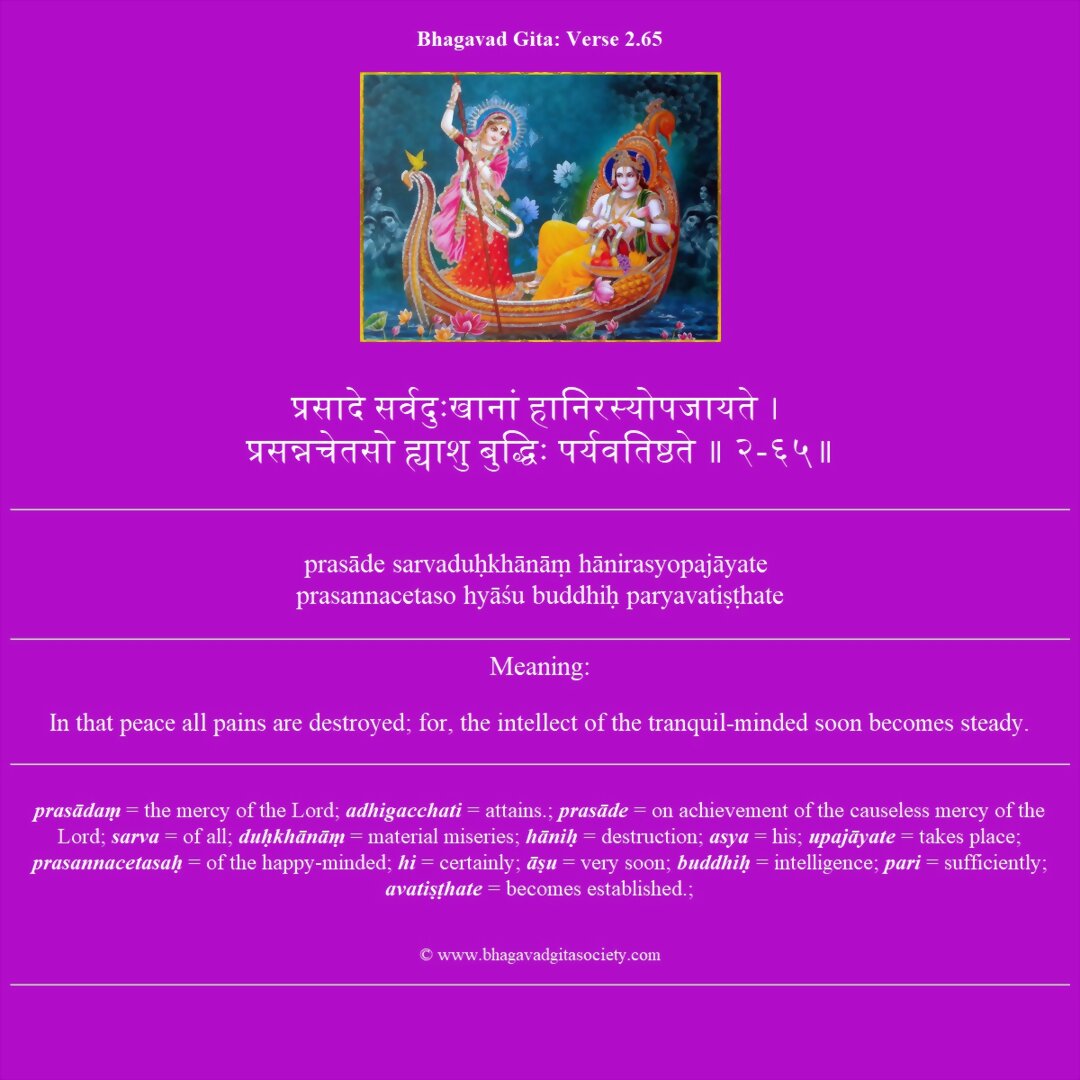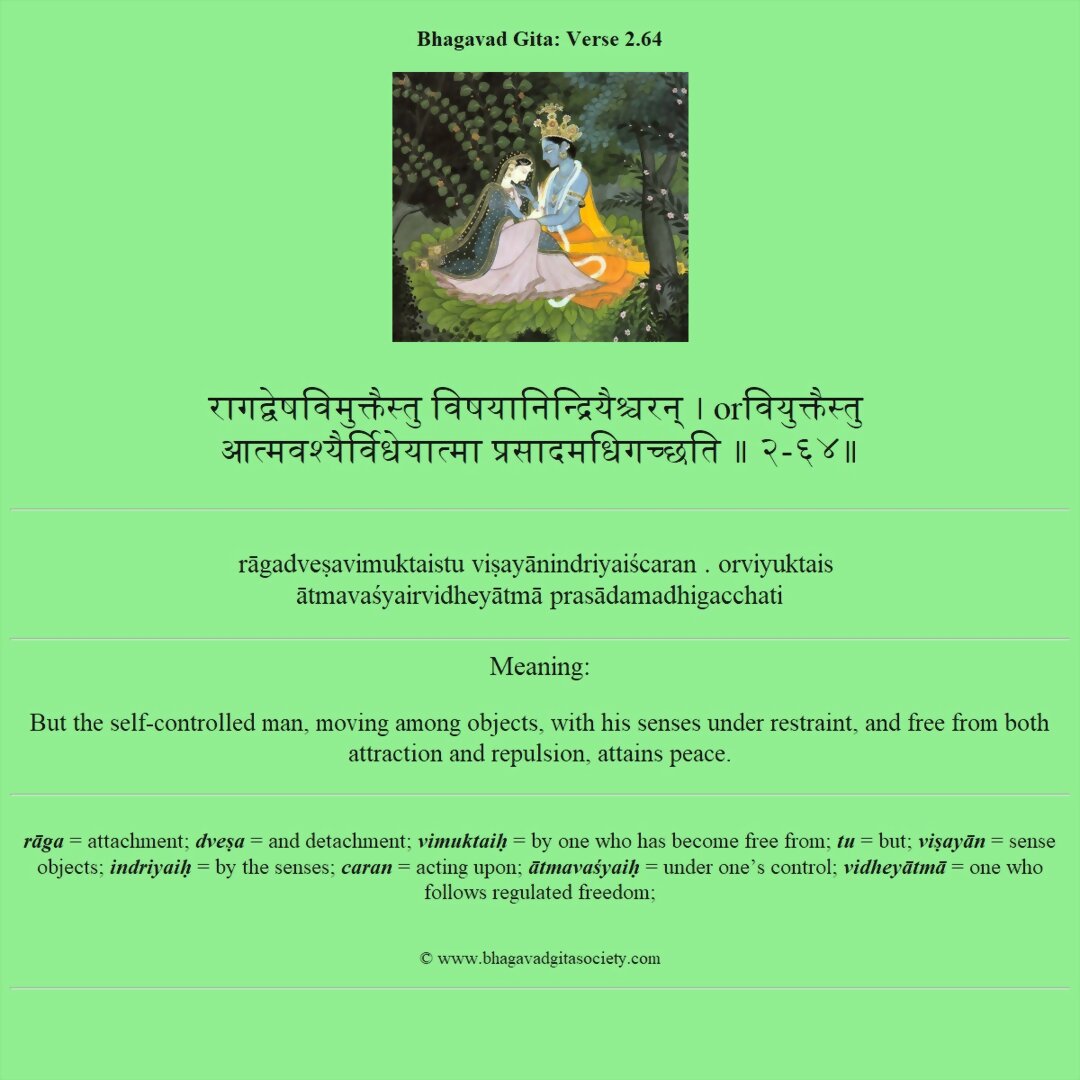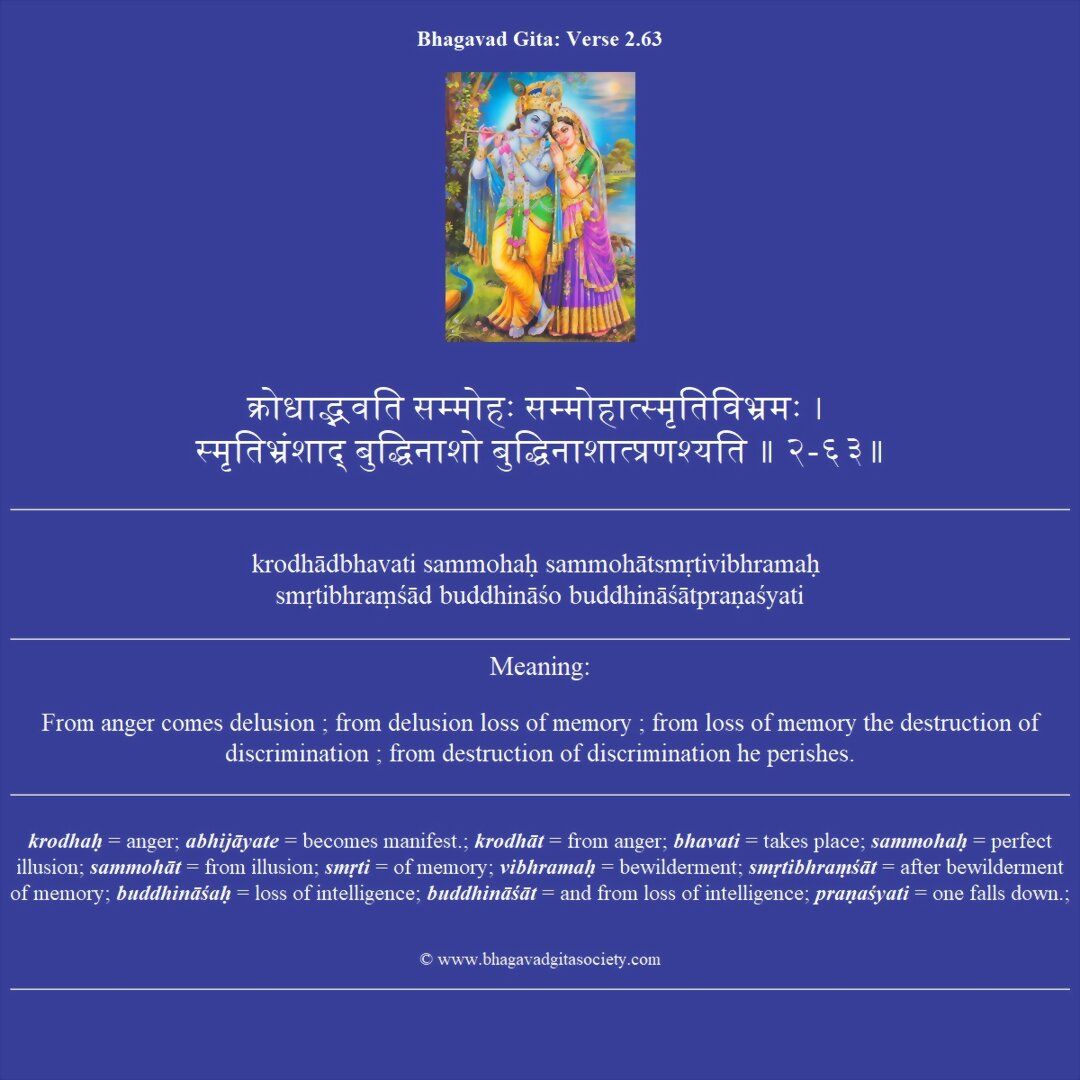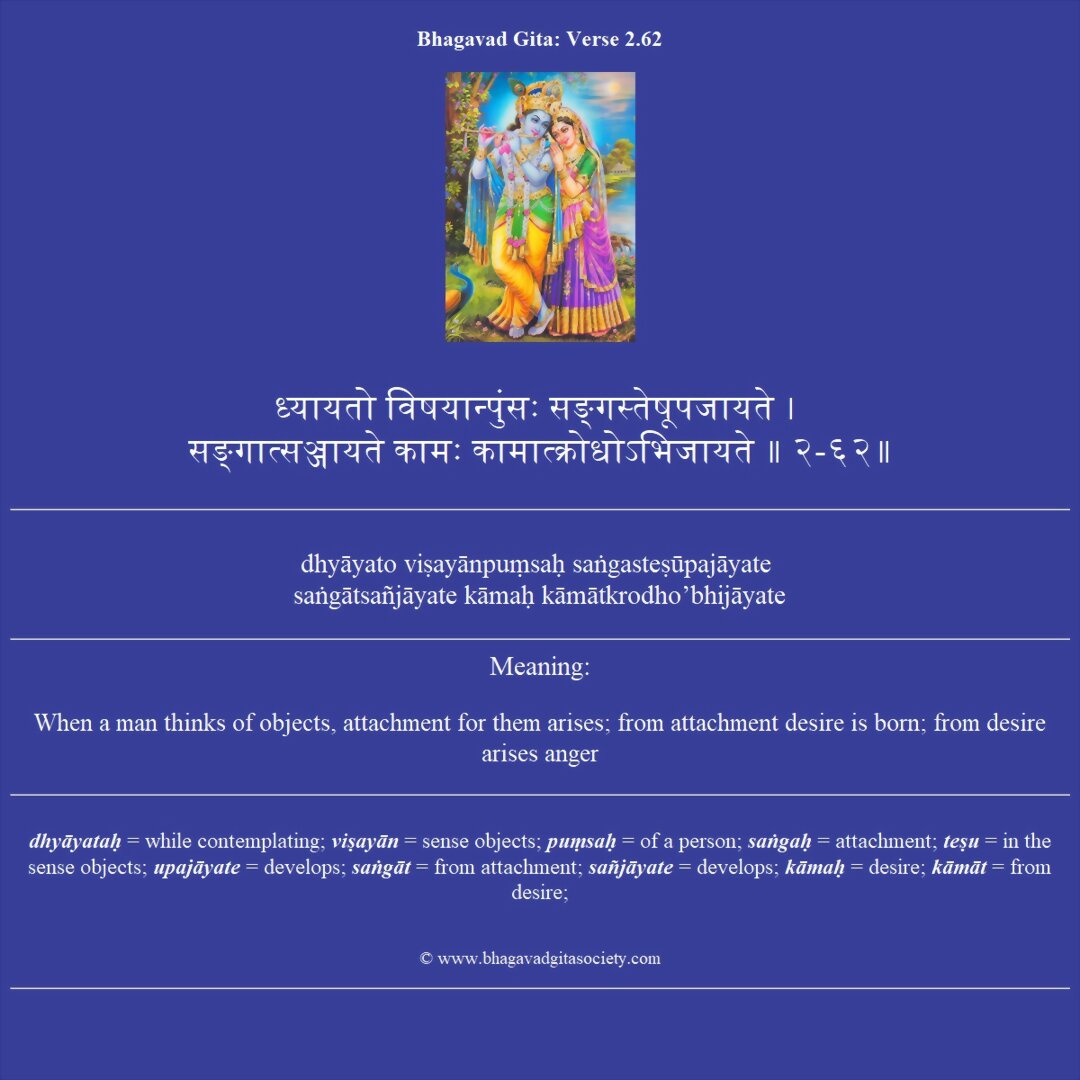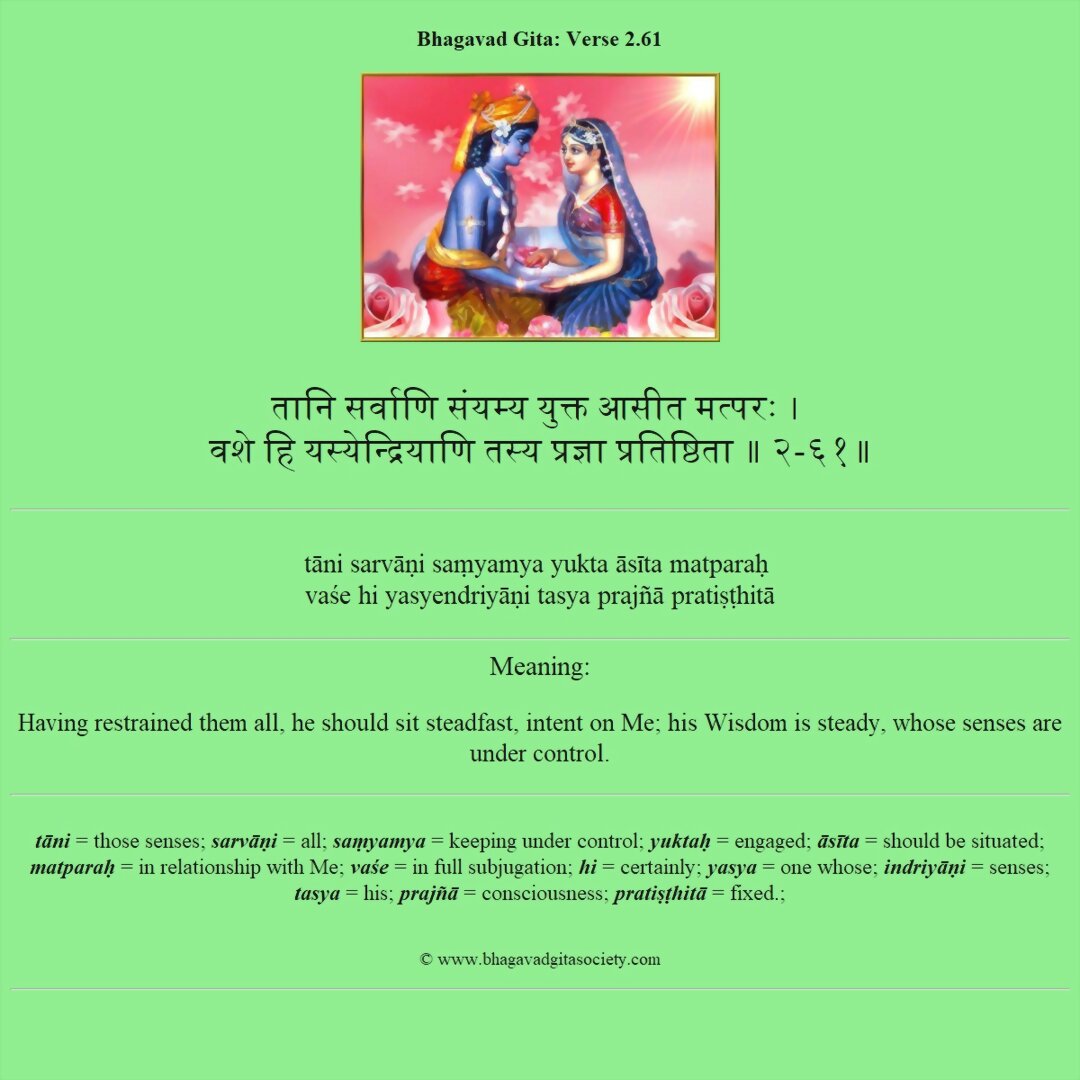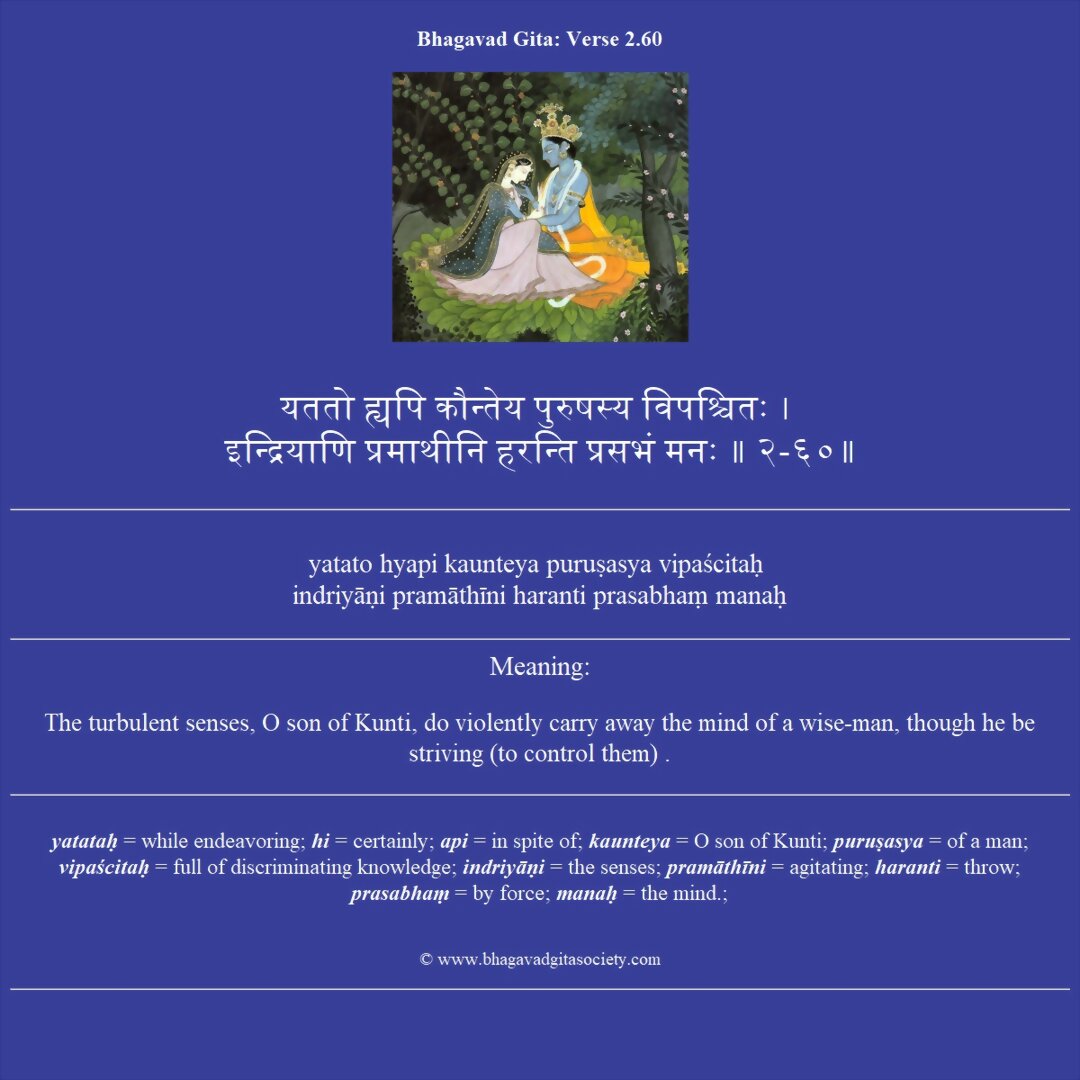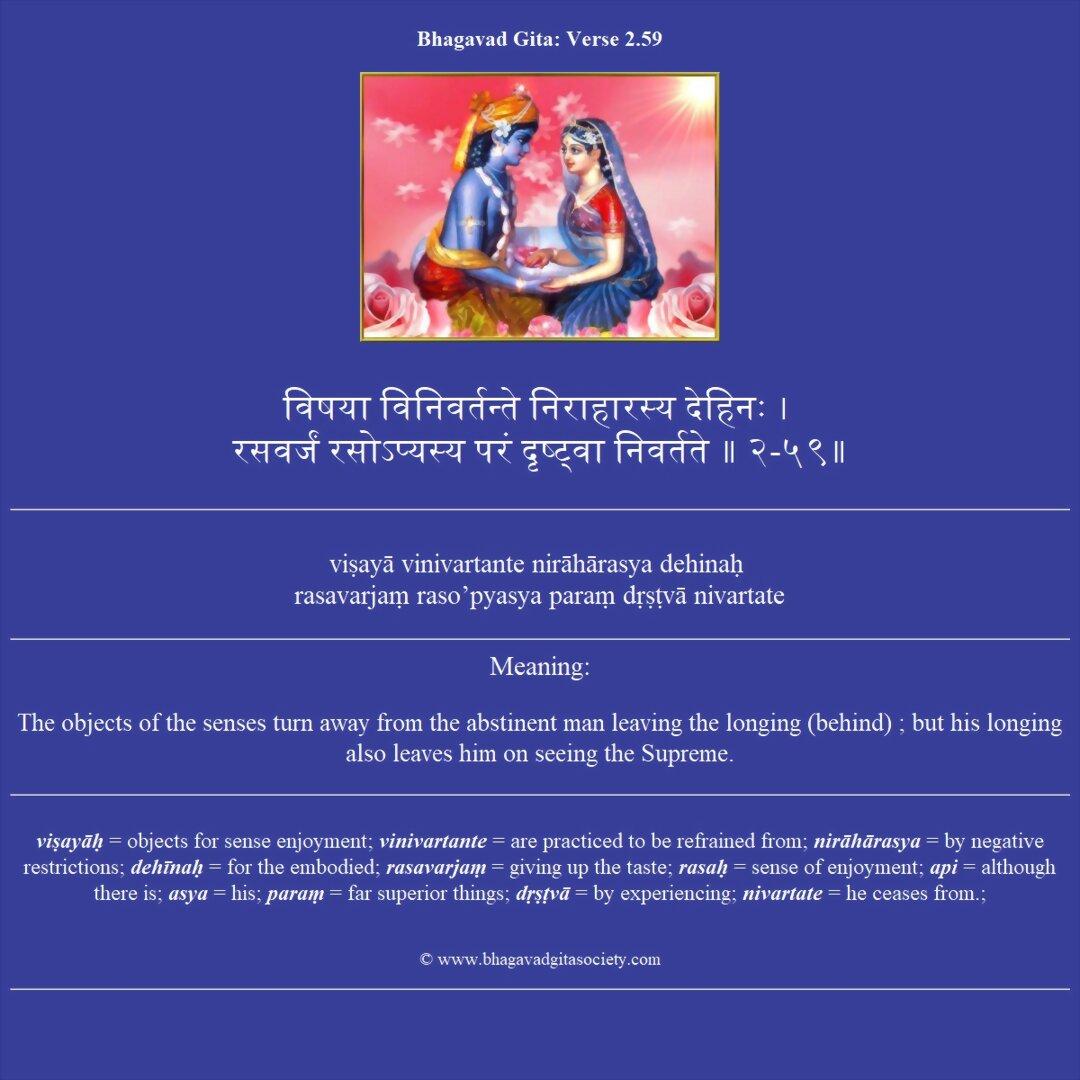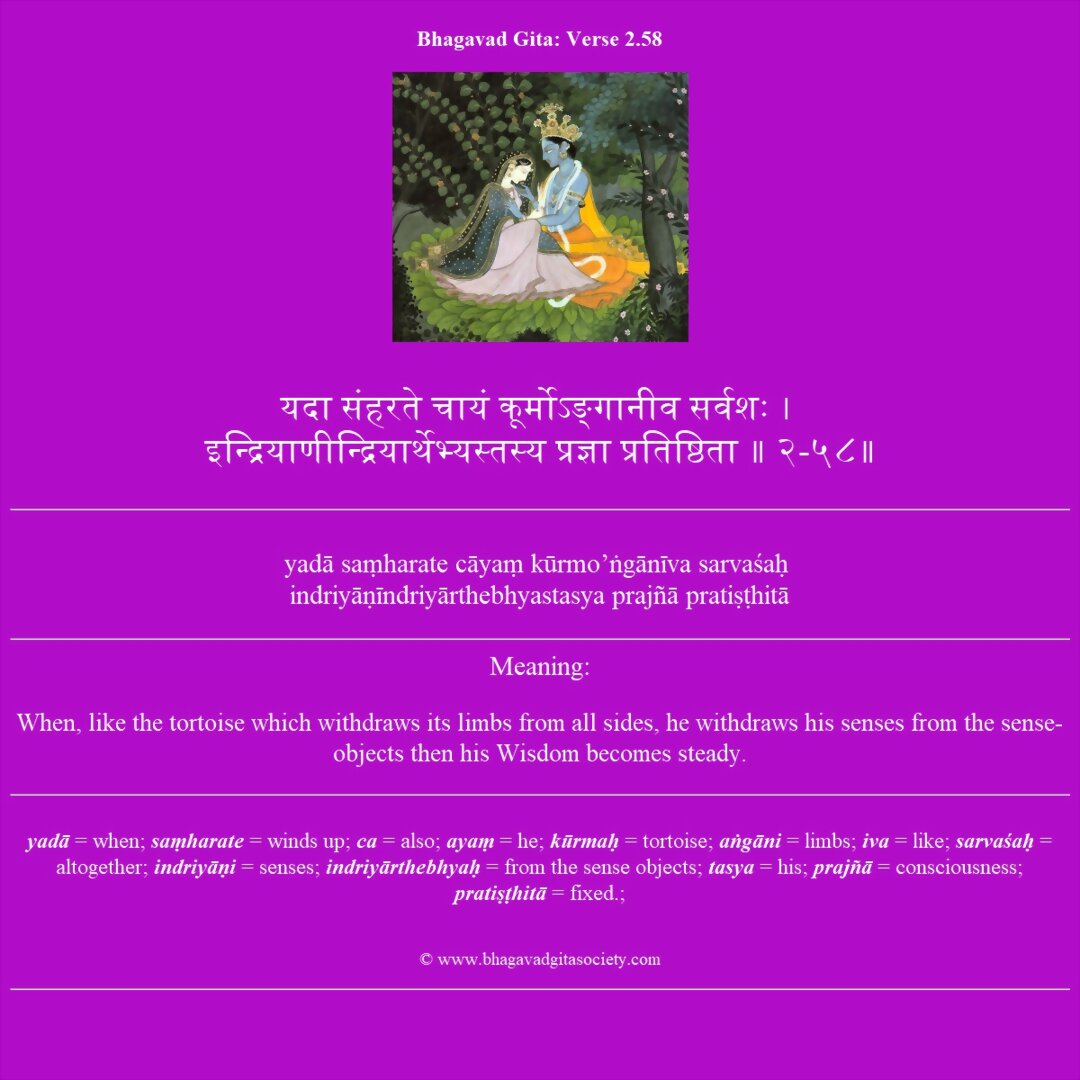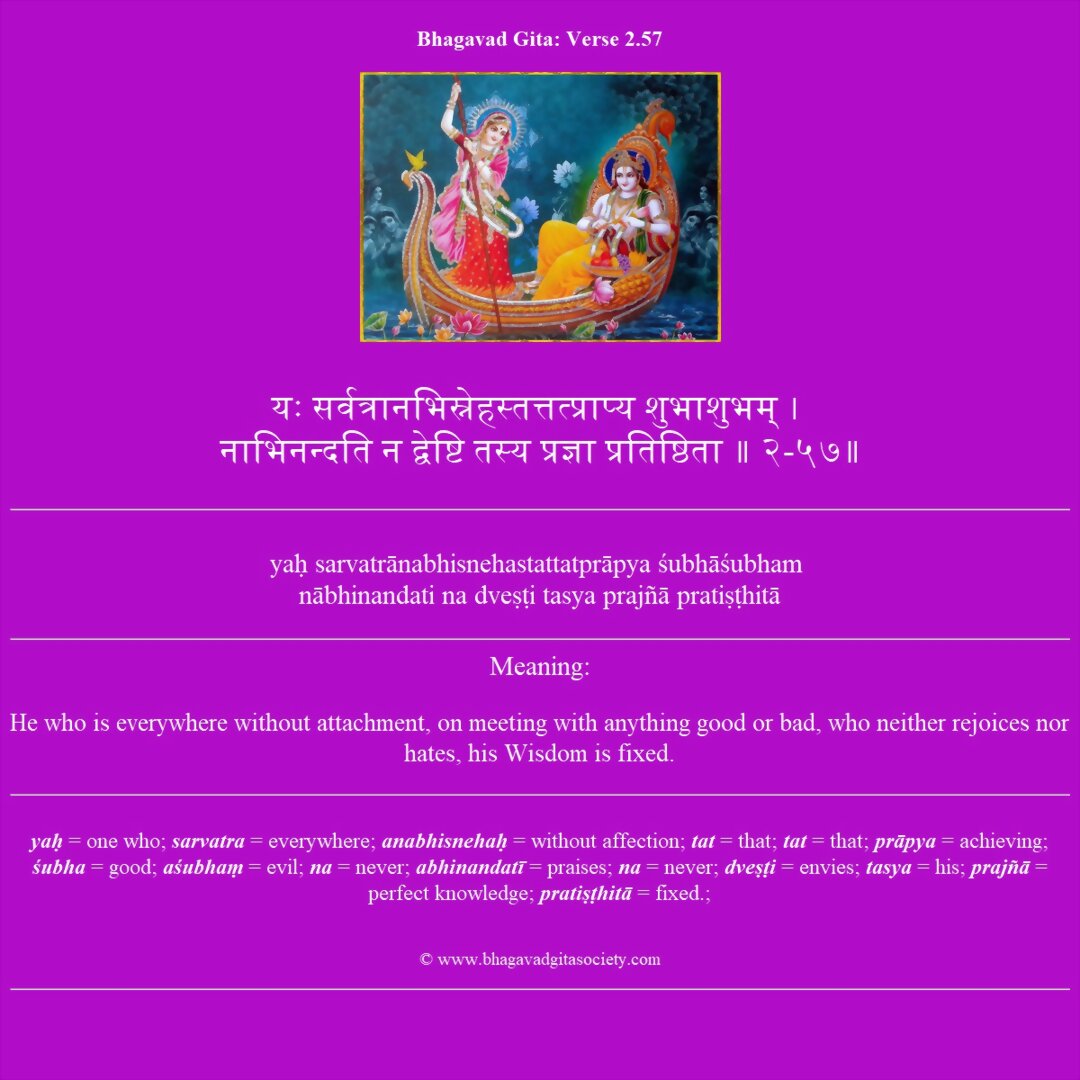Bhagavad Gita: Verse 2.66
नास्ति बुद्धिरयुक्तस्य न चायुक्तस्य भावना ।
न चाभावयतः शान्तिरशान्तस्य कुतः सुखम् ॥ २-६६॥
nāsti buddhirayuktasya na cāyuktasya bhāvanā
na cābhāvayataḥ śāntiraśāntasya kutaḥ sukham
Meaning:
There is no knowledge (of the Self) to the unsteady; and to the unsteady no meditation; and to the unmeditative no peace; to the peaceless, how can there be happiness?
nāsti = there cannot be; buddhiḥ = transcendental intelligence; ayuktasya = of one who is not connected (with Krishna consciousness); na = not; ca = and; ayuktasya = of one devoid of Krishna consciousness; bhāvanā = fixed mind (in happiness); na = not; ca = and; abhāvayataḥ = of one who is not fixed; śāntiḥ = peace; aśāntasya = of the unpeaceful; kutaḥ = where is; sukhaṃ = happiness.;
